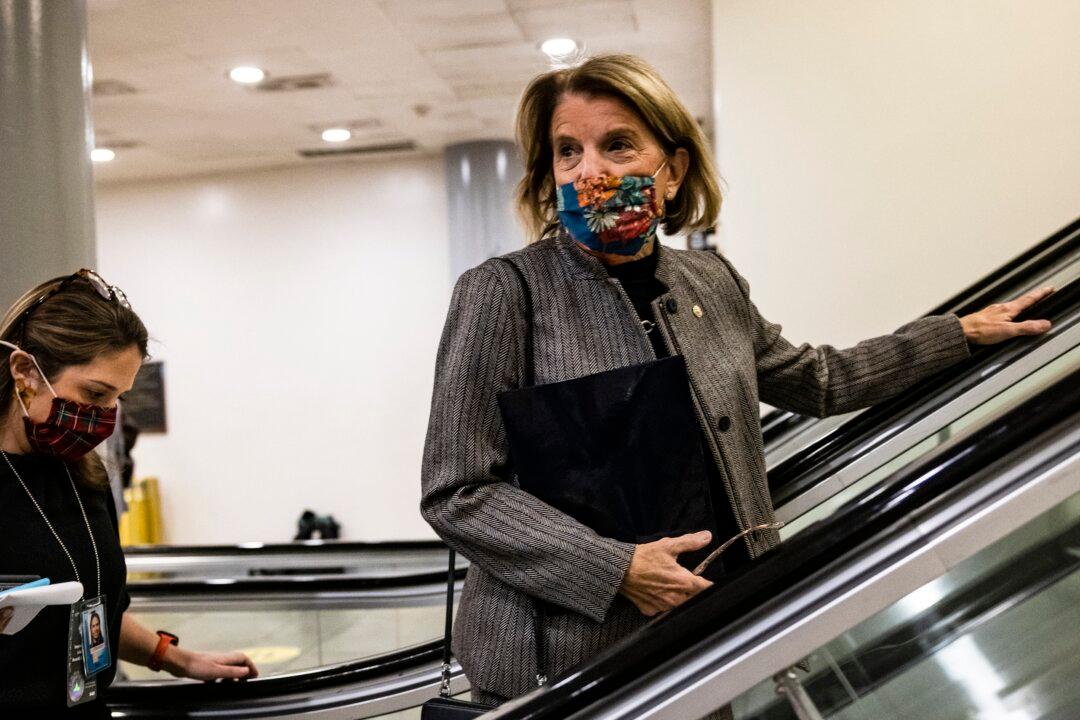President Joe Biden spoke with Sen. Shelley Moore Capito (R-W.Va.), who is leading a Republican response to Biden’s infrastructure proposal, on Thursday about the president’s plan to pass a sweeping $2.3 trillion infrastructure package, according to the White House.
The call signals willingness from both sides to negotiate on a bipartisan infrastructure plan following intense criticism over the Democrats’ decision to push forward with the latest COVID-19 relief package without Republican support. The concerns about the lack of bipartisanship were renewed following Biden’s 100-day speech on Wednesday, with Republicans remaining cynical about how much input Democrats actually want from Republicans.




